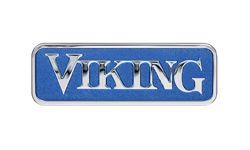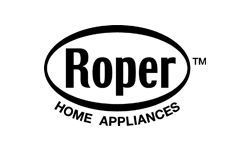FAQs
Astre Appliance Service
Have an appliance-related question? We have the answer. Check out these FAQs and give us a call today for more information!
How does your no-service-charge with repair policy work?
When you set up an appointment with us, there is initially a service charge. A tech visits, diagnoses the problem, figures out a remedy to the problem, and offers you an exact quote for parts and repair costs.
If at that point, you decide you need the appliance repair in Montclair, NJ, the service charge is then waived, and all that is owed is the quoted price for the repair. We also offer a two-year warranty on parts and labor. If, instead of having it repaired, you decide to think about it or purchase a new appliance, only the service charge is levied. If, within 30 days, you decide to have the appliance repaired through us, the service charge is deducted from the originally quoted price, so the price remains the same. For more information, please reach out to Astre Appliance Service today.
How long is your warranty?
We provide a warranty on our parts and labor for two years from the date of the original repair. Within two years from the date of a completed appliance repair in Montclair, NJ or the surrounding areas, Astre Appliance Service will provide the necessary adjustments, corrections, or parts replacement (for repairs previously performed on this invoice only) at no charge, unless noted differently on the invoice. Within the first 30 days from the date of completed repair, no service or trip charge will be charged. After 30 days, the normal trip charges apply.
How do you charge?
We offer flat rate pricing per job. Since we have multiple technicians out on the route, it's not fair to charge hourly rates considering some technicians can do a job faster than others. With flat rate pricing, the job cost is the same for our customers regardless of the technician's speed.
The price quoted is based on the Nation Appliance Major Price Guide Book, also called the blue book for appliance repairs. This book is distributed and approved by all the manufacturers to keep the pricing uniform across the country. If you're looking for an appliance repair in Montclair, NJ, get in touch with us today.
Should I repair or replace my appliance?
Anything can be repaired, but is that fiscally responsible to do so? We understand that at some point, we all need to cut our losses and possibly buy a new appliance. In our experience, the average life span of appliances ranges from 10 to 30 years, depending on the make and model. Our technicians are always upfront with their expert opinion as to whether it's worth fixing or replacing. If it turns out you just need an appliance repair in Montclair, NJ, our team is here to help you.
Can you tell me what's wrong with my appliance and what it costs to fix it over the phone?
No. Simply put, it's impossible to diagnose any issues over the phone. Any type of phone diagnosis would only be speculation because simple issues, such as a broken wire, could seem like much larger problems, such as bad control boards or motors. For an in-person quote on appliance repair in Montclair, NJ, call Astre Appliance Service today.
Why do some appliances cost more to fix than others?
Some appliances, especially the higher-end models, require more knowledge and skill to repair. Nowadays, the amount of electronics knowledge of appliances is just as important as the amount of mechanical knowledge that is required. For more information or to schedule an appliance repair in Montclair, NJ, don't hesitate to reach out to our team today.
How do I stop my dishwasher from making grinding noises?
To mitigate disruptive grinding coming from your dishwasher, it’s essential to engage a trusted service partner who can execute a targeted, root-cause assessment. In many cases, grinding stems from internal component fatigue, motor obstructions, failing bearings, or installation-related vibration—but determining the true source requires professional diagnostics. For homeowners seeking a streamlined, low-risk path to resolution, leveraging a provider specializing in appliance repair in Montclair, NJ ensures the issue is evaluated through an expert lens rather than escalating into a costlier equipment failure.
An expert technician can perform a full operational audit, validate the integrity of high-impact components, and deploy the appropriate corrective measures to restore the unit to optimal performance. This approach minimizes downtime, protects the lifecycle value of your dishwasher, and eliminates the risks associated with unqualified tinkering. By engaging a professional team that delivers white-glove service and precision remediation, you position your household for a seamless return to quiet, reliable kitchen operations.
What should I do if my dishwasher smells like mold?
When your dishwasher produces a mold-like odor, it’s typically a signal that moisture has been allowed to stagnate within hard-to-reach internal zones. Factors such as trapped humidity, residue buildup, or drainage limitations can create an ideal environment for microbial growth, especially in high-efficiency or front-loading systems. While online tips may promote DIY cleaning tactics, the reality is that persistent odors often point to underlying mechanical or drainage inefficiencies that require a more comprehensive, expert-led evaluation. For homeowners looking to fast-track a resolution, partnering with a trusted provider offering appliance repair in Montclair, NJ ensures the issue is addressed holistically rather than masked with temporary fixes.
Our technicians at Astre Appliance Service can execute a deep-dive inspection, validate whether the odor is related to gasket degradation, ventilation limitations, detergent interactions, or internal component failures, and implement the appropriate remediation strategy. This professional-grade approach not only neutralizes the immediate odor challenge but also reinforces equipment longevity and operational stability. By engaging a specialized appliance repair team, you elevate your household maintenance strategy, mitigate risk, and secure a clean, odor-free wash environment without the guesswork of do-it-yourself attempts.





















